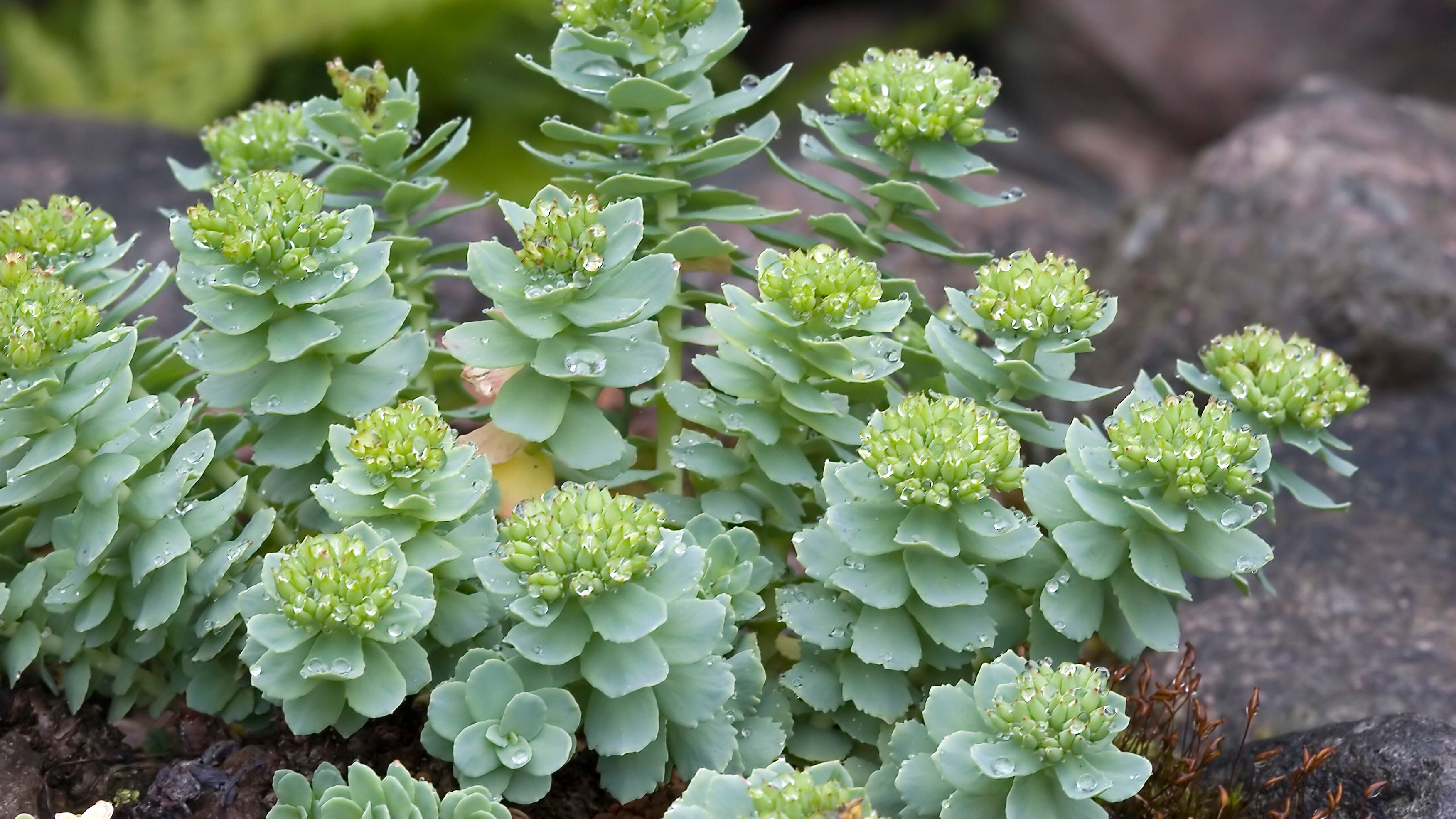Remember maca? Echinacea? St. John's Wort? Every year or so, it seems, a new herbal remedy rises to mainstream consciousness, instantly appearing in good-for-you bottled juices, powders and even capsules at Walgreens.
Well, get ready for a new wave of up-and-comers: rhodiola, bacopa, schisandra, rhaponticum and reishi mushrooms. Meet adaptogens, a family of herbs roughly defined by their link to the secretion of stress hormones in the body. You've already heard of some, like ginseng, and maybe eleuthero and ashwagandha. But more are popping up at hip juice bars and in publications like Entrepreneur and Bustle.
These herbs sound like a revelation: They can relax the body and energize it at the same time, evoking a kind of idealized equilibrium, and help us handle chronic stress, a major contributor to heart disease, obesity, memory impairment and mood disorders. Some coffee drinkers even find certain varieties stimulating enough to replace their morning cup.
But if that all makes adaptogens sound too good to be true, that's because, depending on whom you ask, they are.

Herbalists debate widely even such basic questions as what makes an herb an adaptogen, how adaptogens work in the body, whether they can be misused, who should and should not be using them, and for how long they should be used.
Christopher Smaka, founder of Vital Ways, a "school of traditional Western herbalism" in Northeast Portland, says herbalists' approach to adaptogens depends on where they start.
"To one person, herbalism is botany and medicine-man healing, to another, it's traditional or alternative medicine, and to another, it's a clinical practice," he says.
Smaka, whose work falls solidly in the last category, says adaptogens are herbs that work through the endocrine system to keep stress hormones like cortisol and epinephrine from becoming chronically elevated.
That makes adaptogens different from nervines, a separate class of herbs traditionally used for mental (as opposed to physical) stress. In addition to many nervines being incorrectly labeled as adaptogens, Smaka says one big misstep to avoid as adaptogens become more common is the temptation to lump them together.
"Each adaptogen is a radically different plant," he says, "and you can't say someone needs an adaptogen, then just reach into the bag and grab one."
Herbalist Jo Powell, who founded, directed and instructed at the Northwest School of Herbalism and now teaches herbalism seminars at Chemeketa Community College in Salem, presents adaptogens on a spectrum of stimulation intensity. Some, like Chinese red ginseng, are quite stimulating—in traditional Chinese medicine it was reserved for the elderly or those in recovery from illness.
"In the way I practice," Powell says, "it really depends what's going on in that person's body and life and disease or wellness process."
The herbalists I talked to all stressed reverence for each herb's properties and a deep personalization of herbal strategies for each patient. There's no consensus, though, as to the exact consequences of not following that advice. Powell, for example, says adaptogens cannot be misused.
"One of the definitions of adaptogens in the botanical medicine world is that they are not toxic," she says. "It's like nature provided us with a tonic herb to be used long-term that is safe and effective."
Smaka disagrees, saying adaptogens can throw the neuroendocrine system out of balance and do more harm than good. He's even acknowledged the probable threat of "ginseng abuse syndrome," a condition in which heavy ginseng users can experience elevated blood pressure, nervousness, sleep trouble, skin problems and diarrhea.
Unless you're in recovery from a disease or suffering from extraordinarily high stress, he suggests not using adaptogens.
"They'll facilitate you transitioning from a place of stress or recuperation to a healthier spot," Smaka says, "and then you're done. Adaptogens are really targeting deficiency, weakness and recuperation. The problem is that the average American is walking around with that: chronic stress and chronic malnutrition."
Smaka says that without combining the herbs with other positive changes to your diet and routine, it's just dumping a bucket of water on a bonfire: "The flame won't rise up as high, but the source of the flame, the embers, are still there."
Powell, too, stresses the need to choose herbal practices based on what's needed rather than just trying something a friend is using. But she also sees adaptogens as an obvious way to cope with the unavoidable stresses of modern life.
"As we're all grappling to survive where we're at in the world these days—politically, economically, socially—I think we're all looking for strategies," she says.
Three Adaptogens to Try
Ashwagandha

Like most adaptogens, this Ayurvedic herb helps relieve stress, enhances endurance and calms the nervous system, and it's also known for treating inflammatory conditions like arthritis. In traditional Ayurvedic medicine, it was used to manage anxiety, insomnia, nightmares and obsessive-compulsive tendencies.
Eleuthero

Sometimes (incorrectly) called Siberian ginseng, this herb shares ginseng's stimulating properties but is gentler in its sharpening of mental functions. Associated mostly with traditional Chinese medicine, eleuthero is especially good for treating depression and boosting the immune system.
Rhodiola

Studies have shown this herb is effective in treating a wide range of conditions, from erectile dysfunction to ADHD. Versatile rhodiola can correct an irregular heartbeat and support lung function, offering effective use as an antioxidant, antidepressant and rejuvenating tonic herb as well as an adaptogen.

Welcome to the 2016 Health & Fitness Issue

How I Learned to Fight, And Why All Women Should Take a Self-Defense Class
We Tested Five Complete Nutrition Meals, The Foods of our Very Bleak Future
Here's How to Begin Preparing for the Looming Cascadia Earthquake
Five Products That Will Help You Survive the Cascadia Earthquake

I Spent 10 Days In Silent Meditation, And It Was Brutal
Is Your Yoga Practice Cultural Appropriation?
How Adaptogens, the Hormone-Regulating Family of Herbs, Are Shaping Discussions of Chronic Stress
